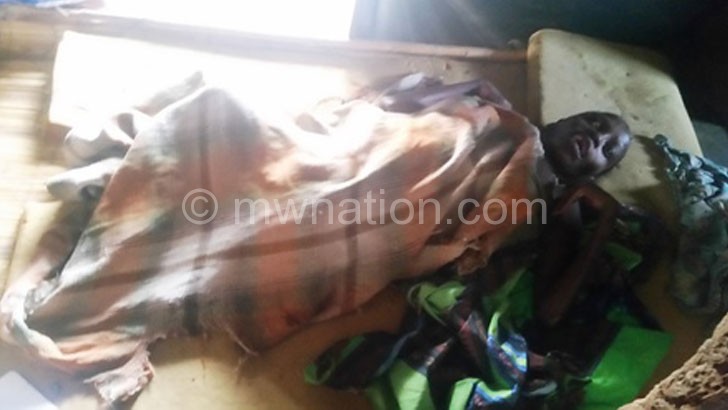Disabled and vulnerable: the story of two Malawi women
She is in her early 40s.
However, Mary Chimimba from Malemia II Village, Traditional Authority (T/A) Ngabu has not been able to speak, see clearly, walk, cook or handle anything since she was five.
She cannot defend herself in any manner, and relies on other people’s support for everything-even answering the call of nature.
Yet in April 2013, Mary started showing signs of being expectant.
Mary’s mother and custodian, Gladys Chimimba, recalls that between January and February 2013, something started changing on Mary’s body, but she did not think much of it.
“Those are farming months and I used to be in the garden leaving her at home. But someone was busy sneaking into my house and raping Mary because you cannot say the two had an agreement. Mary doesn’t speak and cannot negotiate with anyone,” she says.
Gladys admits that she noticed Mary’s pregnancy late, after some women from the village mentioned it. But she never believed them at first, she says.
“Some friends came to tip me that Mary looked pregnant. I told them off on several occasions until I realised that they were right,” she says.
The problem though, says Gladys, was in identifying the man responsible for the pregnancy.

“I tried hard to ask Mary about the person responsible, but she could not say anything because she doesn’t speak. I asked around the community to help me identify the person, but it was all in vain,” adds Gladys.
Gladys says she accepted the situation and decided to focus on taking care of Mary.
Throughout the pregnancy until delivery in October 2014, Gladys says Mary acted normally.
“She delivered at home and we quickly rushed her to Ngabu Hospital. She came out strong and healthy,” says Gladys.
Today, the baby looks healthy; but Gladys says she is faced with a daunting task of taking care of the two. She cannot hide her feelings about the man who made Mary pregnant without the family’s knowledge.
“What did we do to deserve this? Are there no other women out there whom this man could have gone to, rather than worsening my daughter’s situation?”
The pain ripping Gladys heart is nothing different from that of Marvis Khembo from Mvundula Village, T/A Kunthembwe, Blantyre.
Khembo’s daughter, 43-year-old Jean, suffered cerebral malaria at the age of two. Since then, she has been confined to the mat-not able to talk, walk or do anything for herself.
But like Mary, Jean was made pregnant by a man that cannot be identified. She is now about six months pregnant.
The pregnancy was been confirmed by doctors at Queen Elizabeth Central Hospital (Qech) where Jean’s antenatal records were first recorded, according to her health passport. But because of her condition, nurses visit her at her house to monitor her pregnancy.
“She cannot talk, she only groans. And when she groans, it’s either she needs help such as to be turned around or be fed. She has been in this condition for 41 years now. And the pregnancy has just worsened her condition. Only God knows why this had to happen,” laments Jean’s mother.
Just like Mary’s tragedy, the search for the person responsible for the pregnancy proved futile.
According to media reports, cases of women with disabilities being raped, defiled and abused appear to be common in Malawi.
International research, mainly from Europe and North America, has shown that people with disabilities are more likely to be subjected to sexual abuse, physical violence and neglect than people without disabilities.
However, studies show that despite the greater prevalence and seriousness of abuse against people with disabilities, and despite the more pronounced consequences, such acts are less likely to be disclosed.





